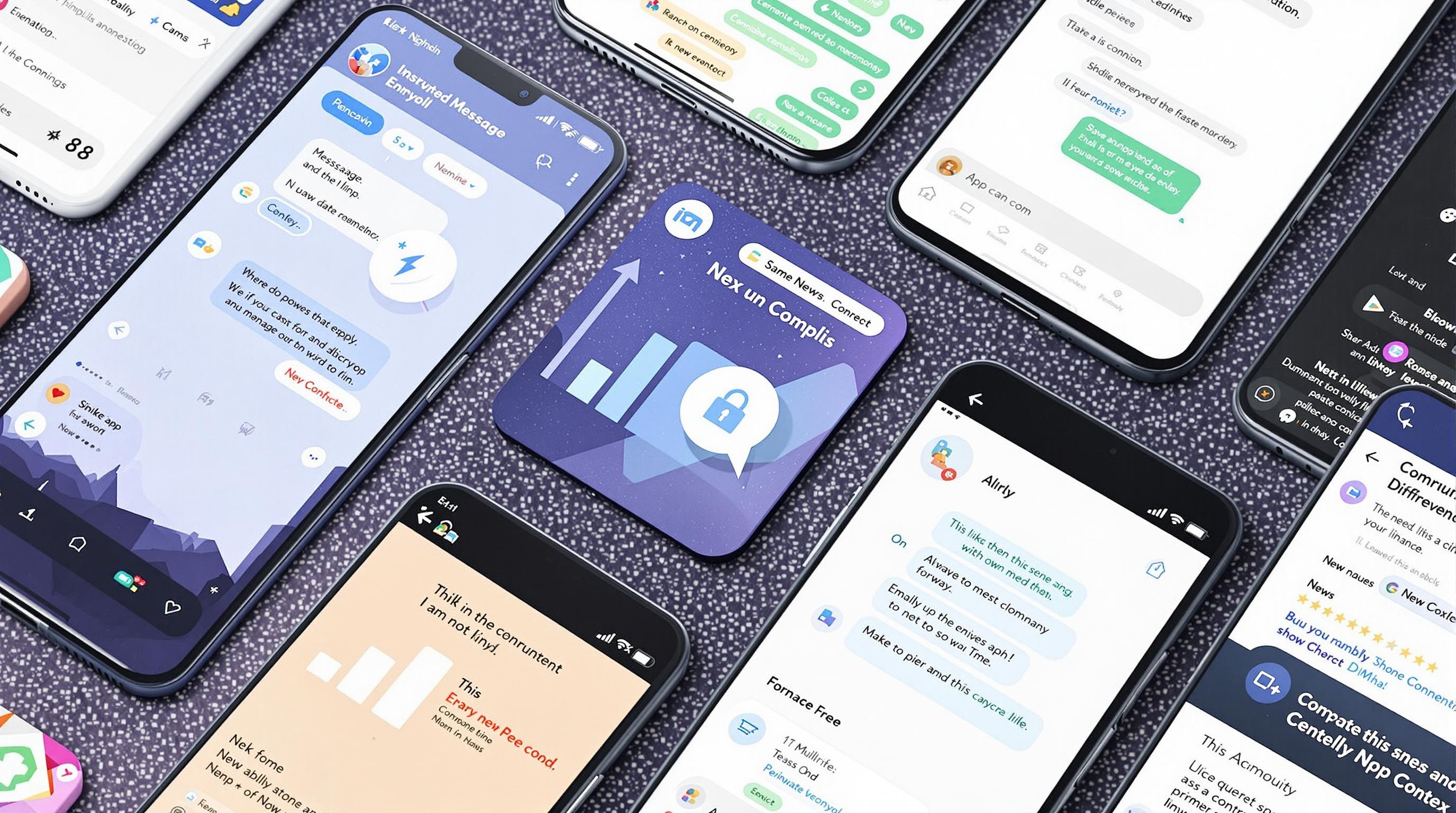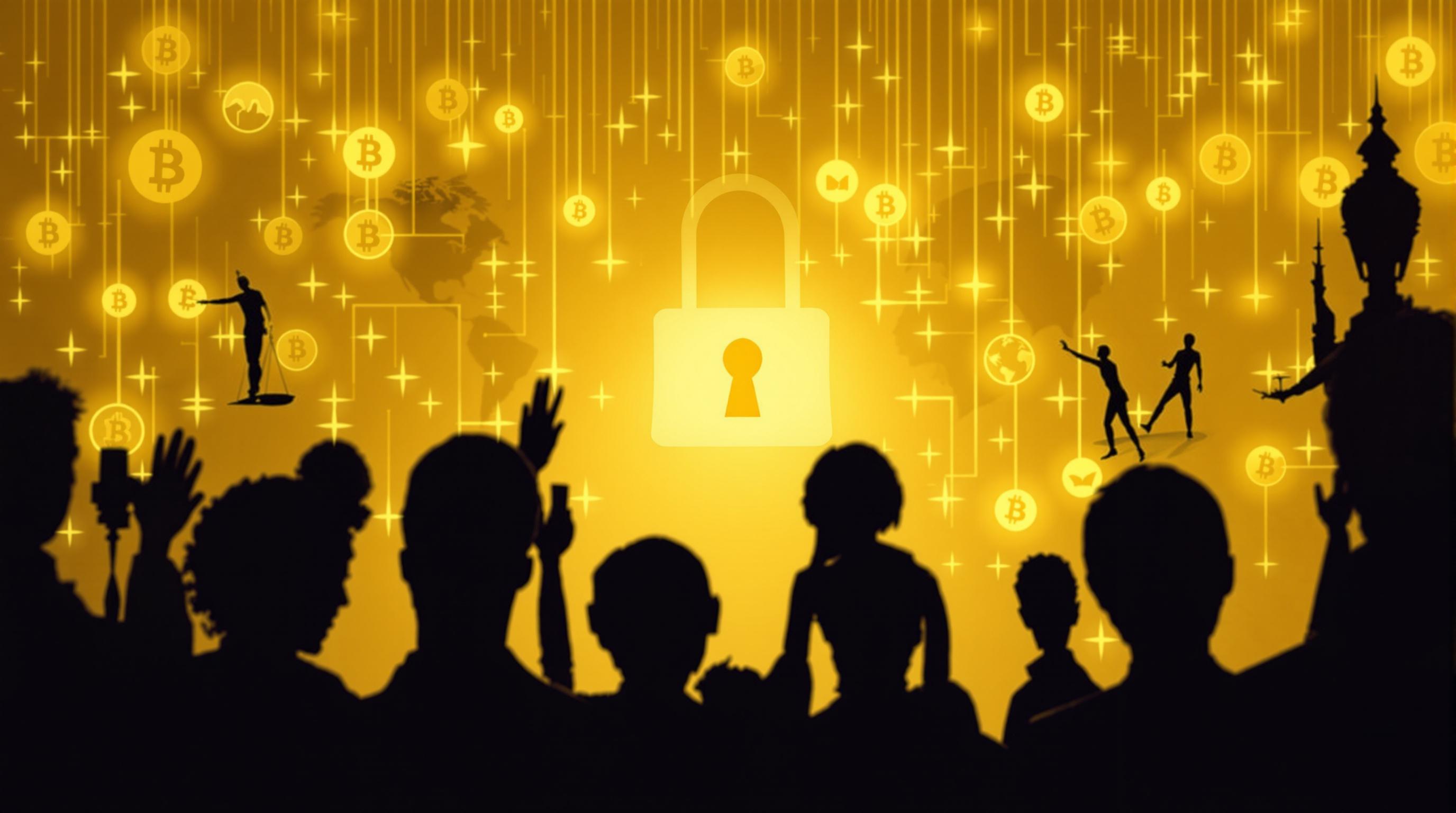Related Articles
- 7 Game-Changing Encrypted Messaging Apps Released Since 2019 That Redefine User Control
- Exploring Quantum Entanglement as a Future Layer of Protection for Connected Devices in Decentralized Networks
- Top 7 Privacy-Focused Cloud Backup Services Released Since 2019 That Redefine Data Control
- Exploring Psychological Barriers That Prevent Wider Adaptation of Dual Verification in Everyday Tech Use
- Top 6 Privacy-Focused Browsers from the Last Five Years That Outpace Giants in Speed and Security
- 6 Lesser-Known Identity Protection Gadgets From the Last Five Years That Actually Outperform Popular Brands
7 Game-Changing Encrypted Messaging Apps Released Since 2019 That Redefine User Control
7 Game-Changing Encrypted Messaging Apps Released Since 2019 That Redefine User Control
Since 2019, several encrypted messaging apps have revolutionized the way users control their privacy and data. This article explores seven standout applications that combine robust security with user-centric features, reshaping digital communication.
Unlocking User Sovereignty: The Rise of Encrypted Messaging
Imagine a world where every message you send is not only private but controlled exclusively by you—no middlemen, no unauthorized access, just pure user empowerment. This concept is no longer a futuristic dream but a reality made possible by groundbreaking encrypted messaging apps launched since 2019.
1. Signal: The Gold Standard Reinvented
Signal's roots date further back, but its 2020 updates bolstered its position as a pioneer in encrypted messaging. With end-to-end encryption and an emphasis on minimal data retention, Signal ensures that what you say stays between you and your recipient. According to Elektron Security Labs, Signal’s protocol is used by numerous other platforms, highlighting its trustworthiness.
Notably, Signal introduced features such as disappearing messages, encrypted group calls, and enhanced anonymity tools. Its open-source nature means the security community continuously audits and improves it, a critical factor in its adoption by privacy advocates worldwide.
2. Session: Anonymous Messaging Without Borders
Launched in 2019, Session breaks away from traditional phone number-based accounts, allowing users complete anonymity. By routing messages through a decentralized onion-routing network, Session eliminates centralized servers that might be compromised. This design protects users against metadata analysis—a common privacy vulnerability.
One example is its adoption by activists in restrictive regimes, where anonymity and secure communication aren't just conveniences but matters of life and death.
The Importance of User Control in Today’s Digital Landscape
In an era where 64% of users worry about online privacy (Pew Research Center, 2021), having tools that put control firmly into their hands is no longer optional but essential. Encrypted messaging apps aren’t just about secrecy; they're about trust, transparency, and empowering users to define the terms of their communication.
3. Wire: Enterprise-Style Security Meets User Flexibility
Wire was revamped in 2019 with a renewed focus on both privacy and collaboration. While originally targeting corporate users, Wire’s end-to-end encryption and user-friendly interface have attracted a broader audience. It supports multiple synchronized devices per account, encrypted video calls, and secure file sharing with persistent control settings.
Wire’s compliance with strict European privacy laws positions it as a model for integrating privacy with professional functionality, making it ideal for users who want encrypted communication without compromising usability.
Behind the Scenes: How Decentralized Networks Transform Privacy
Decentralization is a game-changer. Unlike traditional servers, decentralized networks distribute message handling across a web of nodes worldwide. This model limits surveillance and single points of failure. Apps like Session demonstrate this by using blockchain-inspired routing to safeguard identities.
4. Threema: Respecting Anonymity Since Day One
Though established earlier, Threema’s ongoing updates post-2019 emphasize user anonymity beyond phone numbers or emails. Available primarily in Europe, it offers end-to-end encryption across texts, voice calls, and even polls. Threema’s encrypted polls provide a unique avenue for secure group decision-making.
Threema has earned trust through transparency reports and adherence to Swiss privacy laws, regarded as some of the most protective worldwide.
5. Briar: Messaging for the Off-Grid Generation
If you think the internet is the only place to communicate, Briar challenges that notion. Designed to work over Bluetooth or Wi-Fi, Briar’s mesh networking allows users to chat even without cellular connectivity. Launched with a beta in 2019, its resilience against network outages and censorship has drawn interest from humanitarian organizations and expedition teams alike.
A 2022 case study by the International Aid Tech Coalition highlighted how Briar maintained communications during a natural disaster when cell towers failed.
Why Should You Make the Switch?
Many traditional messaging platforms trade privacy for convenience or monetization. With data breaches becoming daily headlines—like the 2021 breach exposing over 500 million users’ data—switching to encrypted, user-controlled apps is both a precaution and a statement. These new apps equip users with tools once reserved for cybersecurity experts.
6. Olvid: Zero Metadata, Zero Compromise
Olvid debuted with a radical approach: no phone number, no email, no central server logging—only end-to-end encrypted messages that don’t produce metadata footprints. Its super-secure key exchange system ensures only intended recipients decipher messages. Based in France, Olvid complies with GDPR standards, making it popular among European users seeking ultimate privacy.
7. Delta Chat: Email as Messaging, Reimagined
Delta Chat converts existing email infrastructure into a fully encrypted messaging platform, eliminating the need for centralized messaging servers. Launched officially in 2019, it leverages the widespread adoption of email while layering encryption and chat-like interfaces for a familiar yet secure experience.
Its clever use of open email protocols reduces barriers to secure communication, especially in regions where downloading messaging apps can be restricted or censored.
Final Thoughts: A New Era of Communication
As a 37-year-old digital journalist who’s witnessed the evolution of communications technology firsthand, I can attest to the importance of these innovations. These seven apps—pillars in privacy and control—reflect a world increasingly aware of data sovereignty and the right to secure expression.
From activists fighting censorship to everyday users guarding their digital footprints, these tools offer more than encrypted messages—they grant freedom.




